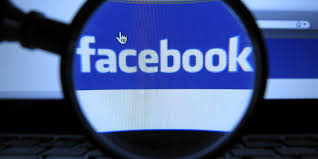LAST WEEK, A MAJOR censorship controversy erupted when Facebook began deleting all posts containing the iconic photograph of the Vietnamese “Napalm Girl” on the ground that it violated the company’s ban on “child nudity.” Facebook even deleted a post from the prime minister of Norway, who posted the photograph in protest of the censorship. As outrage spread, Facebook ultimately reversed itself — acknowledging “the history and global importance of this image in documenting a particular moment in time” — but this episode illustrated many of the dangers I’ve previously highlighted in having private tech companies like Facebook, Twitter, and Google become the arbiters of what we can and cannot see.
Having just resolved that censorship effort, Facebook seems to be vigorously courting another. The Associated Press reports today from Jerusalem that “the Israeli government and Facebook have agreed to work together to determine how to tackle incitement on the social media network.” These meetings are taking place “as the government pushes ahead with legislative steps meant to force social networks to rein in content that Israel says incites violence.” In other words, Israel is about to legislatively force Facebook to censor content deemed by Israeli officials to be improper, and Facebook appears eager to appease those threats by working directly with the Israeli government to determine what content should be censored.

